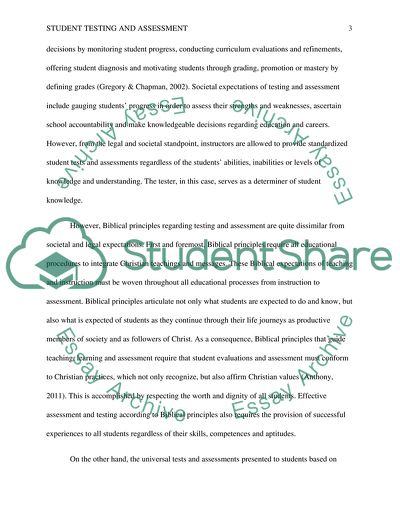Cite this document
(The Controversial Issue of Student Testing and Assestment Essay Example | Topics and Well Written Essays - 1250 words - 1, n.d.)
The Controversial Issue of Student Testing and Assestment Essay Example | Topics and Well Written Essays - 1250 words - 1. https://studentshare.org/education/1802271-the-controversial-issue-of-student-testing-and-assestment
The Controversial Issue of Student Testing and Assestment Essay Example | Topics and Well Written Essays - 1250 words - 1. https://studentshare.org/education/1802271-the-controversial-issue-of-student-testing-and-assestment
(The Controversial Issue of Student Testing and Assestment Essay Example | Topics and Well Written Essays - 1250 Words - 1)
The Controversial Issue of Student Testing and Assestment Essay Example | Topics and Well Written Essays - 1250 Words - 1. https://studentshare.org/education/1802271-the-controversial-issue-of-student-testing-and-assestment.
The Controversial Issue of Student Testing and Assestment Essay Example | Topics and Well Written Essays - 1250 Words - 1. https://studentshare.org/education/1802271-the-controversial-issue-of-student-testing-and-assestment.
“The Controversial Issue of Student Testing and Assestment Essay Example | Topics and Well Written Essays - 1250 Words - 1”. https://studentshare.org/education/1802271-the-controversial-issue-of-student-testing-and-assestment.


